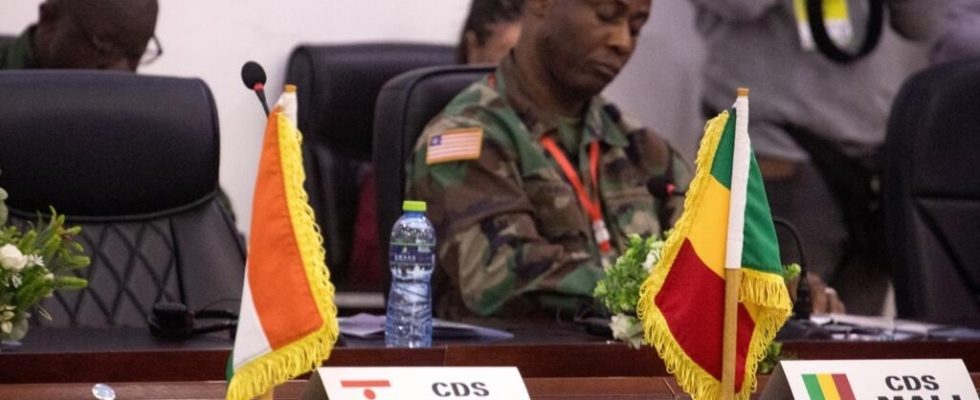Implemented after the July 26 coup, the sanctions have significantly affected the state’s budget and economy. However, this country, which has one of the lowest human development indices, is proving more resilient than expected.
3 mins
Freezing of state accounts at the BCEAO, inability to raise funds on regional markets, suspension of external financing, estimated at more than 7% of GDP… These are the sanctions imposed on Niger since its coup d’état . However, the Nigerien state has shown resilience “ outstanding » highlights an economist from a large institution, contacted by RFI.
The State, which no longer has access to its accounts held at the BCEAO, has implemented the collection of taxes in cash. 70% of its electricity which came from Nigeria was cut off. In response, Niger quickly managed to develop alternatives through the development of thermal power plants benefiting in particular from the use of the new Gorou Banda solar power plant. The next harvests should also provide significant indications on the health of the agricultural sector and the benefits for the country’s economy…
Current concerns mainly concern the financial sector. Private banks still have partial access to the regional market, allowing them to maintain a minimum of liquidity in circulation. However, they hold 14% of Niger’s debt. However, the State is accumulating payment arrears, underlines the Moodies rating agency which already downgraded Niger’s rating last August. Arrears with banks, as well as international donors. The total unpaid debts would amount to $458 million.
Part of this debt matures on January 31. If Niger were unable to repay these obligations, which could be reclassified as “ non-performing loans », which would have an impact on the solvency of the State. But also on its neighbors who could, through contagion, see their borrowing conditions also deteriorate.
Iran announces its desire to help Niger circumvent sanctions
The Nigerien Prime Minister, Ali Mahamane Lamine Zeine, was received in Tehran by the Iranian Vice-President Mohammad Mokhber. The two countries have decided to open embassies and strengthen their cooperation, reports our correspondent in Tehran, Siavosh Ghazi.
The Iranian vice-president denounced the sanctions imposed against Niger and affirmed that Iran would help this country to circumvent them. Tehran is subject to very heavy American and European sanctions because of its nuclear and ballistic programs.
Mohammad Mokhber also welcomed the constitution of a “ independent government » after the coup in Niger
Partnership agreements were signed between the two countries in the areas of energy, health and finance.
Moreover, the two countries have decided to open embassies in Tehran and Niamey.
In recent months, Iran has affirmed its support for new leaders who took power in Mali, Burkina Faso and Niger after coups.
Last September, while receiving the Nigerien Minister of Foreign Affairs, Iranian President Ebrahim Raïssi, “ praises the resistance of these African countries ” It front of ” European hegemonic policies “.
No information has been given on possible military cooperation between Tehran and Niamey but Iran is seeking to strengthen its presence in Africa in particular by selling conventional weapons but also drones to different countries on the continent.
Before Tehran, the Nigerien Prime Minister visited Russia and Turkey.
